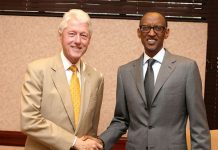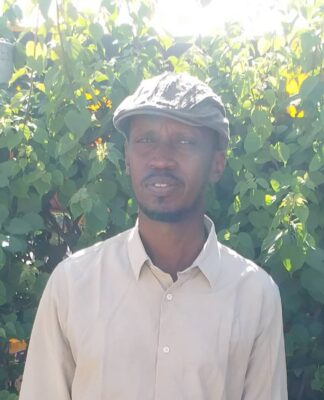Victoire Ingabire Umuhoza, Déogratias Mushayidi and Bernard Ntaganda. Nominated by members of European Parliament Willy Meyer, Rosa Estaràs, Santiago Fisas, María Muñiz, Ana Miranda and 37 other MEPs for the international Sakharov Prize edition 2012.
The Sakharov Prize for Freedom of Thought, named after Soviet scientist and dissident Andrei Sakharov, was established in December 1988 by the European Parliament as a means to honour individuals or organisations who have dedicated their lives to the defence of human rights and freedom of thought.
Rwanda has witnessed, during recent decades, a cycle of systematic violence aimed at excluding a great part of the population from the governance of the country. Cleavages in Rwandan society, both of ethnic origin or based on regionalism, have brought about disastrous effects on the country and its population.
Victoire Ingabire Umuhoza (Rwanda) was forced into exile in the Netherlands, following the Rwandan genocide. She very quickly became engaged in community life. Ms Ingabire became a founding member of the Contact non-profit organization, then of Dialogue and Charity Actions where she was co-Director until 2000. She was also co-Director of URAHO, an organization of Rwandan women exiled in the Netherlands and was also a founding member of the PRO JUSTITIA – Rwanda, then CEO of the ZWALU association, a platform gathering all expatriate women in the Netherlands. Later on she helped in the creation of HARAMBE, also a platform for African women in the same country.
Simultaneously Ms Ingabire was an active sponsor of the Inter-Rwandan Dialogue, an effort to bring together Rwandans of all ethnic origins in order to discuss the future of their country.
Ms Ingabire went back to Rwanda on 16 January 2010, in order to run for the presidential elections to be held in August. She was not only banned from participating in those elections but was also detained in October 2010 and charged with attempts against State security and espousing a genocide ideology, a crime defined by the UN human rights Committee – as well as by the majority of organizations for the protection of the same – as an infringement of liberty. She is currently being kept at the infamous central prison of Kigali. Before being arrested Ms Ingabire was subject to even worse humiliations by the regime’s security forces.
After she announced her intention to run for the presidential elections, her aged mother, living in the Netherlands, was charged with genocide and condemned in absentia to a heavy imprisonment term.
Ms Ingabire is a symbolic example of peaceful combat for the defence of citizens fundamental rights. Her innermost conviction affirms that only a nation living in reconciliation will be able to put an end to the political culture of exclusion and violence that has defined the history of Rwanda for far too many years.
By striving for the stability of Rwanda, she is simultaneously working for the same result in the Great Lakes region.

Déogratias Mushayidi (Rwanda) was born in 1961 at Sake in South-East Rwanda. Mr
Mushayidi is a Tutsi who escaped the genocide, during which he lost many members of his family. Albeit being himself a victim, he refused to caution the deadly crimes committed by the Rwandan Patriotic Front (RPF), the Tutsi movement in power in Rwanda since 1994. A former representative of that military-political movement in Switzerland from 1990 to 1994, and even having brilliant prospects within the RPF, it was shocking news when Mr Mushayidi resigned from his post of RPF assistant Secretary General. He condemned the army of that movement, which boasted that it had stopped the Tutsi killings, for itself becoming a warmachine aimed at slaughtering Hutu communities having nothing to do with Tutsi extermination.
In Belgium, where he is a refugee, Mr Mushayidi has worked actively in favour of a dialogue among Rwandans of all ethnic origins.Having been kidnapped in Burundi in March 2010, Mr Mushayidi was deported to Rwanda against all international conventions. At the conclusion of a trial without any witnesses for the prosecution he was sentenced to life imprisonment for attempts against the security of the
State as a result of his articles and his political views.
While returning to Africa to obtain official recognition of his political party in Rwanda, the Covenant for People’s Defence Pact (PDP Imanzi), Mr Mushayidi was aware of the risks he was running.

Bernard Ntaganda (Rwanda) was born in 1969 in the township of Ntongwe (Gitarama). Beginning in his youth Mr Ntaganda was spurred on by love for his brethren, and the defence of human rights and fundamental freedoms. On this basis he made the choice to study law. After secondary school he began his political career. Mr Ntaganda was appointed assistant Mayor in charge of judicial and political affairs
in his native township. At that time he was 21 years old. With the arrival of a multi-party system in 1991, he became a member of the Social Democratic Party. Mr Ntaganda was chosen as head of his party in the National University of Rwanda (1993), then at the Gitarama prefecture and afterwards as a member of the PSD political bureau (2001-2008).
On 14 December 2008 Mr Ntaganda took the initiative of convening in Kigali numerous colleagues of the democratic opposition. Together, they carried out a critical assessment of the political situation in Rwanda. They remarked on the absence of an opening in the political arena, non-respect of human rights and the absence of an independent justice system, absence of freedom of expression, drastic inequality at the economic level, and absence of a project of society to overcome it and provide an answer to the people’s basic needs.
Following multiple attempts to neutralise his party, on 24 June 2010, the RPF sent Mr Ntaganda to prison. This was the same date that candidatures to the presidency of the Republic (elections being called for 9 August 2010) had to be registered. During his imprisonment, he was regularly beaten and held in total isolation. On 14 October 2010, Mr
Ntaganda had to be taken to intensive care due to torture inflicted on him. Despite the illtreatment inflicted on him, as well as on other responsible officers of his party and of the democratic opposition, the democratic youth IMBERAKURI want to show that the seeds of democracy sown by their president are alive and growing.
On April 22 2012, Mr Ntaganda was sentenced, with no possibility of appeal, to 4 years in prison for the mere fact of having founded an opposition political party.
List of nominees for the Sakharov Prize 2012































































Those are Rwandans heroes. Please can you list other Rwandans heroes who love their country and people and who are ready to sacrifice their lives for the true cause: UNITING ALL RWANDANS.